“Is SEO Dead” is a common sentiment every year, not just in 2025.
While yes, the prevalence of AI-generated content and Google’s own AI features changes the playing field somehow, SEO is far from dead.
Google’s mantra has always been (and likely always will be) user experience – and if some SEO strategies fall out of fashion doesn’t mean SEO is dead as a whole.
In this article, we’ll dive into why some people claim SEO is dead, the specific challenges marketers face this year, and of course, how you can overcome them.
Link building cheat sheet
Constant Algorithm Updates
If there’s one thing you can count on in the SEO world, it’s change.
Google’s algorithms are constantly evolving, and 2025 is no exception.
These updates are designed to improve search results and provide users with the most relevant and high-quality information.
But for marketers, they can feel like a never-ending rollercoaster.
Google’s goal is to refine its ability to understand search intent and deliver the best possible search experience.
This means that factors like content quality, user experience, and relevance are becoming increasingly important. Staying on top of these updates is essential for any SEO strategy.
Let’s look at the latest update as an example.
December 2024 Update
The December 2024 update was significant, focusing heavily on content quality and user experience – which is true for pretty much every Google update.
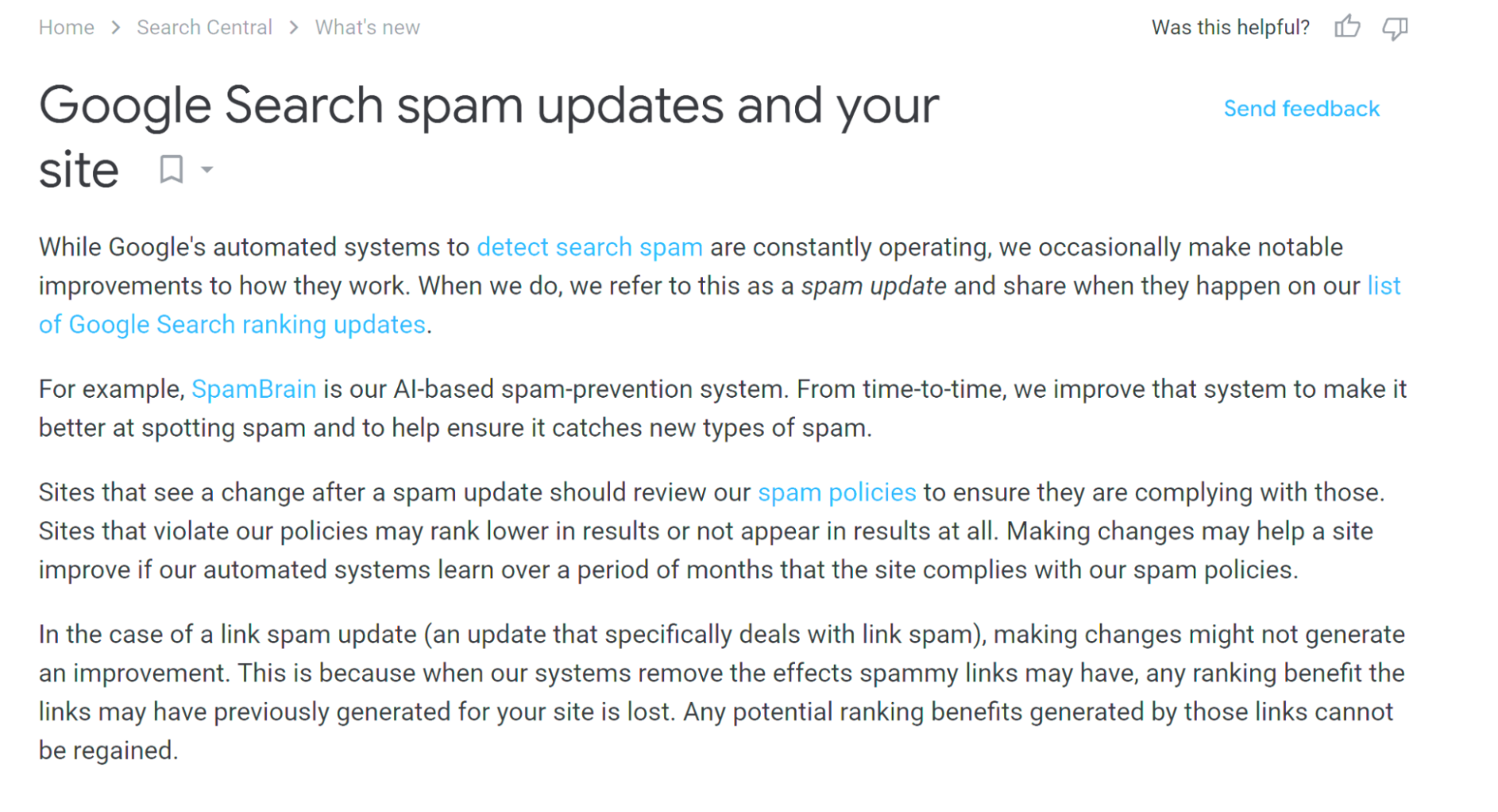
Google’s aim was to further reduce the prevalence of low-quality, unhelpful content in search results.
Specifically, this update placed a greater emphasis on:
- E-E-A-T (Experience, Expertise, Authoritativeness, and Trustworthiness): Google is now even more critical of content that lacks these qualities. This means that content creators need to demonstrate real-world experience, deep expertise, and establish themselves as authorities in their respective fields. And, of course, this aims to reduce AI content spam.
- User Intent: It’s not just about matching keywords anymore; it’s about understanding the underlying intent behind branded keywords.
- Site Experience: Page speed, mobile-friendliness, and overall site usability are now even more critical ranking factors. Google is prioritizing websites that provide a seamless and enjoyable user experience.
How it Impacts SEO
Content creators must focus on producing high-quality, original content that provides real value to users. This has always been true, but not even more so.
The same goes for technical SEO, local SEO and site optimization in general – these are more important than ever.
Building trust and authority is essential for long-term SEO success.
Essentially, the December 2024 update is a clear signal that Google is doubling down on its commitment to user experience.
SEO optimization isn’t just about going all-in on a specific strategy, it’s about providing an overall positive experience for your users.
The Rise (and Fall) of AI Content
Let’s face it: AI content generation tools like ChatGPT and Gemini have changed the game.
Especially if you factor in that their base features are free.
Now, you don’t need to spend hours on drafting and writing – you can have AI do it for you in just a few minutes.
The trade-off here, of course, is quality. While if you don’t dig too deep into it, a blog post might look just fine, but there are patterns.
A weird word used here and there, or “robotic” figures of speech.
You can kind of tell when something is written by AI.
That’s not to say that AI is inherently bad – in fact, we use it ourselves (even while writing this!), but it’s definitely not a replacement for a human writer.
It can be generic, repetitive, and fail to provide real value to users – since its outputs are often based on whatever is currently ranking in the top 10.
It’s a creativity and efficiency enhancer for your writers, not a replacement.
And Google thinks so too – articles that are obviously churned out by AI are quickly pushed back to the void of page 2 or further.
See for yourself:
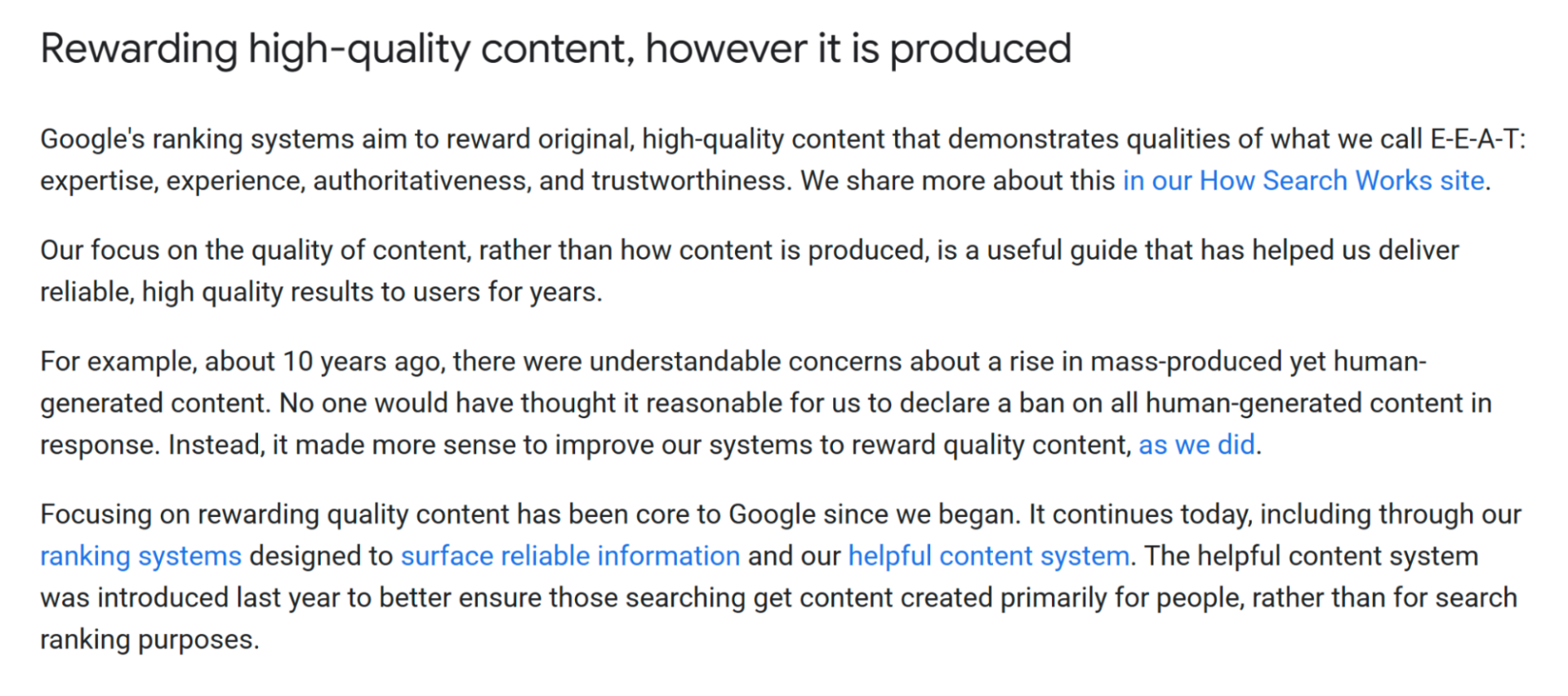
You can still use AI as a useful tool for brainstorming, research, and even drafting content, but practice common sense.
If your content actually helps the user, then it’s good. If it doesn’t, don’t bother publishing.
Google Search Generative Experience
While early iterations of Google’s AI sometimes produced inaccurate or even harmful results, its ability has significantly improved.
The Search Generative Experience (SGE) demonstrates a significant evolution.
Basically, what it does is synthesize information from top-ranking content to provide direct answers to user queries.
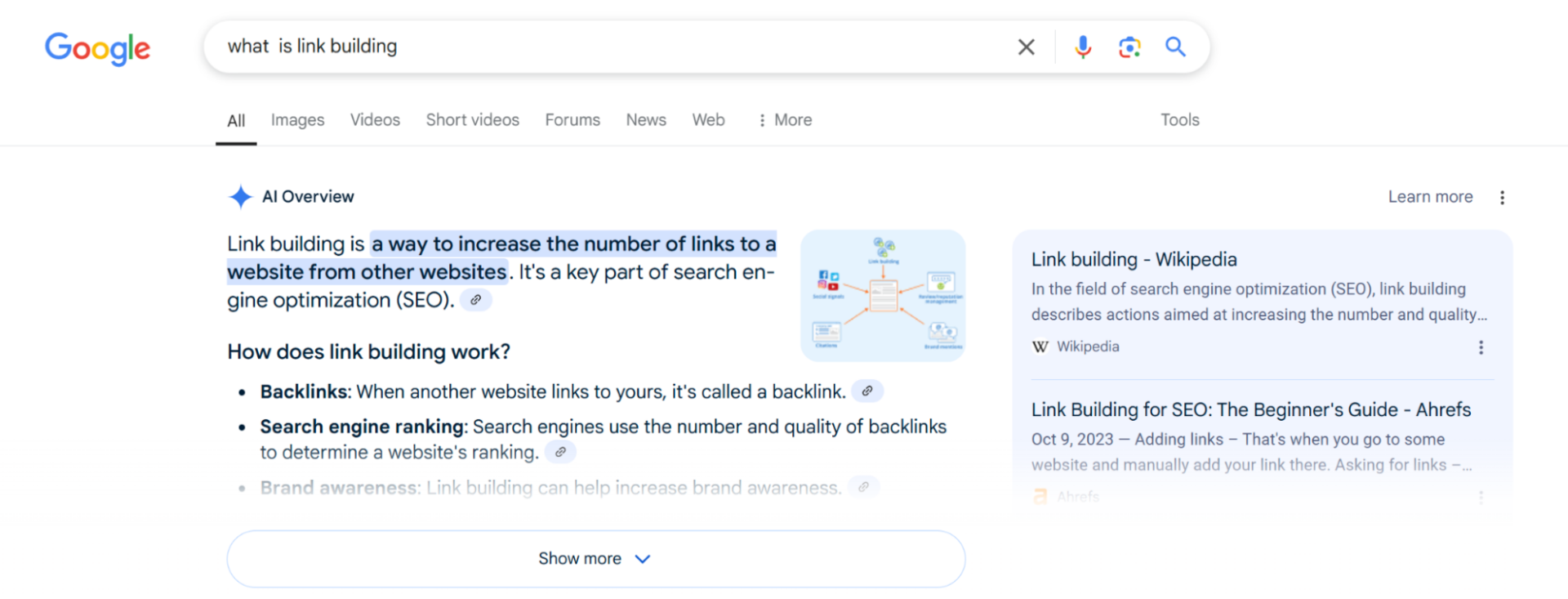
Similar to its previous iterations in the form of a featured snippet, the Google Assistant can “steal” a portion of traffic from the original source websites, because the answer to the user query is readily available – no clicks necessary.
This is one of the biggest contributors to the “Is SEO dead?” question.
While yes, it may take away some of the traffic away from the pages it pulls results from, it also offers new opportunities.
For queries like “top X tools” or “best Y products,” consistent inclusion in reputable listicle posts can lead to your brand being featured in Google’s AI-generated output.
This can significantly boost user trust and get you a whole bunch of hot leads you never knew you had by placing your brand in front of users actively seeking solutions.
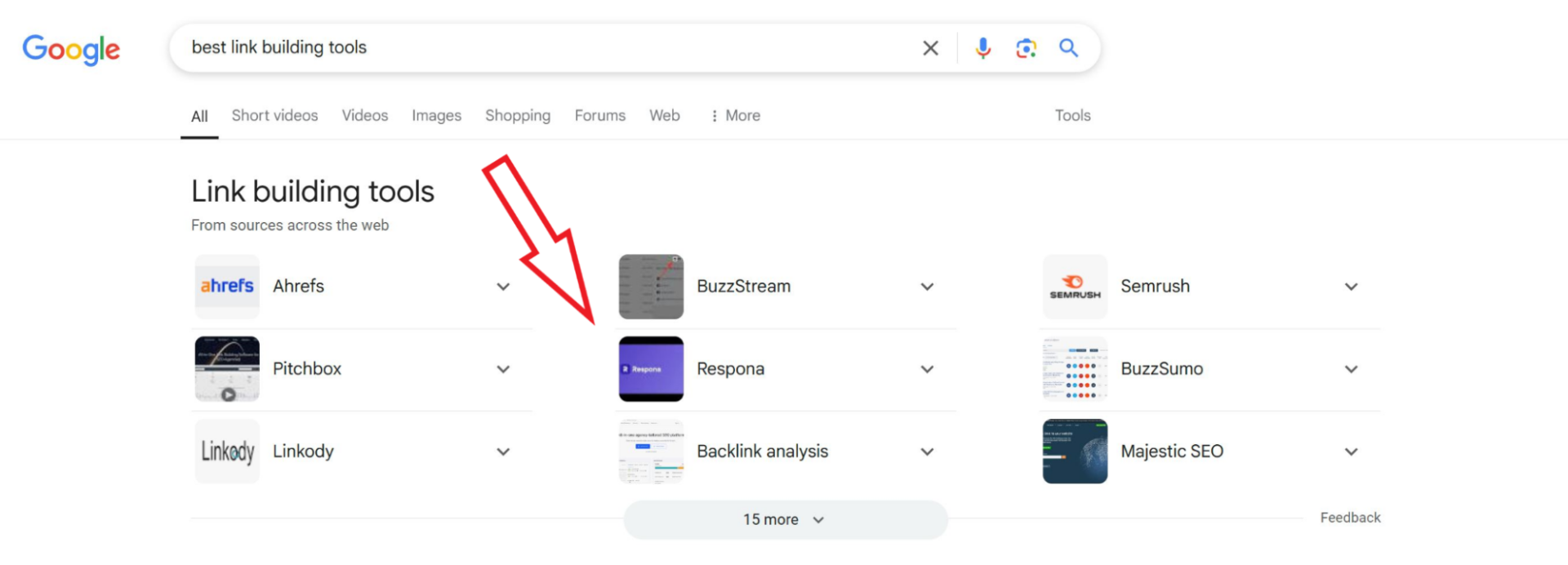
We’re not going to get into the step-by-step for getting featured in listicle posts for the sake of brevity, but if you’d like to learn how you can get these for yourself, feel free to watch this video:
YouTube Videos are More Engaging than Blog Posts
This point ties directly into the previous one. We’ve seen that Google’s AI increasingly favors video results over recent posts, and frankly, it’s easy to see why.
Video content offers a level of engagement that text alone simply can’t match.
Think about it: consuming a several-thousand-word blog post requires a significant time investment and focused attention.
In contrast, a well-produced video can convey the same information in a more digestible and visually appealing format.
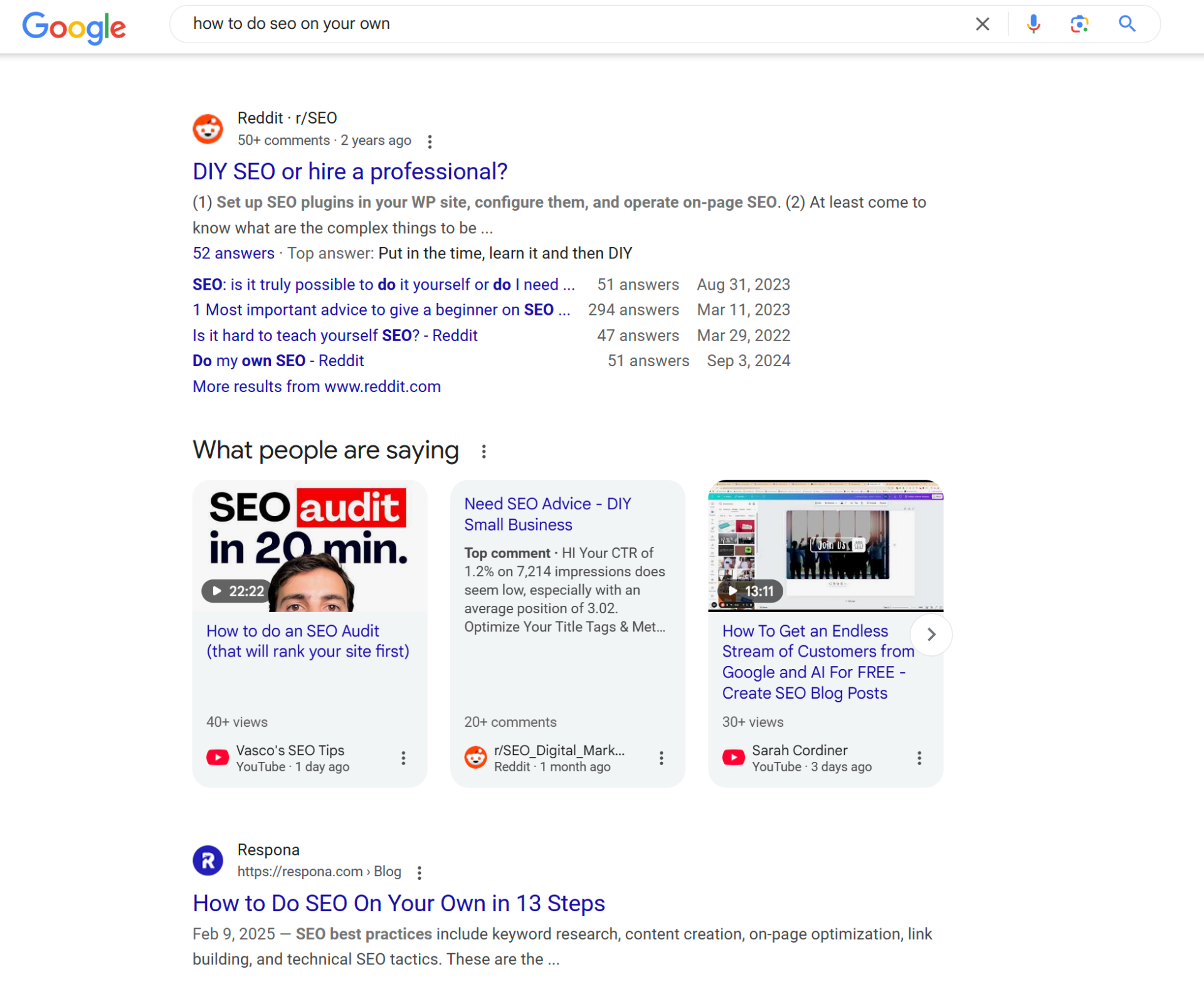
Also, remember the last time you needed help with something – did you read a blog post or did you watch a YT video?
Beyond YouTube, platforms like Reddit and Quora dominate search results (voice search too) – especially for highly niche terms.
People can tell when they’re being marketed to and when an actual expert educates them.
Be that expert.
Yes, you may lose out on some traffic for your own site, but if you invest into establishing a presence in your niche’s communities, you can win over the trust of your ideal audience.
As long as you’re engaging with them as a human and not a business entity.
Tiered link building aims to do just that.
Too Much Competition
It’s never been easier to launch a website.
For just a few dozen dollars, anyone can set up a professional-looking site and start publishing content.
This accessibility has led to an explosion of online content, making competition incredibly stiff, especially in crowded niches like digital marketing and SEO.
Naturally, this leads to a perpetual rat race.
Every successful strategy you implement will be mirrored by your competitors, and vice versa.
This vicious cycle continues endlessly as new contenders enter the field on a near-weekly basis, leading to a highly saturated environment.
This is another factor contributing to the “organic SEO is dead” argument by some modern SEO professionals.
Many feel that the sheer volume of content makes it impossible to stand out.
So, how do you?
Just prioritize user experience. Have a good product, and offer actually helpful content.
Free tools are the way to go to get people to visit your site. Like our free email finder:
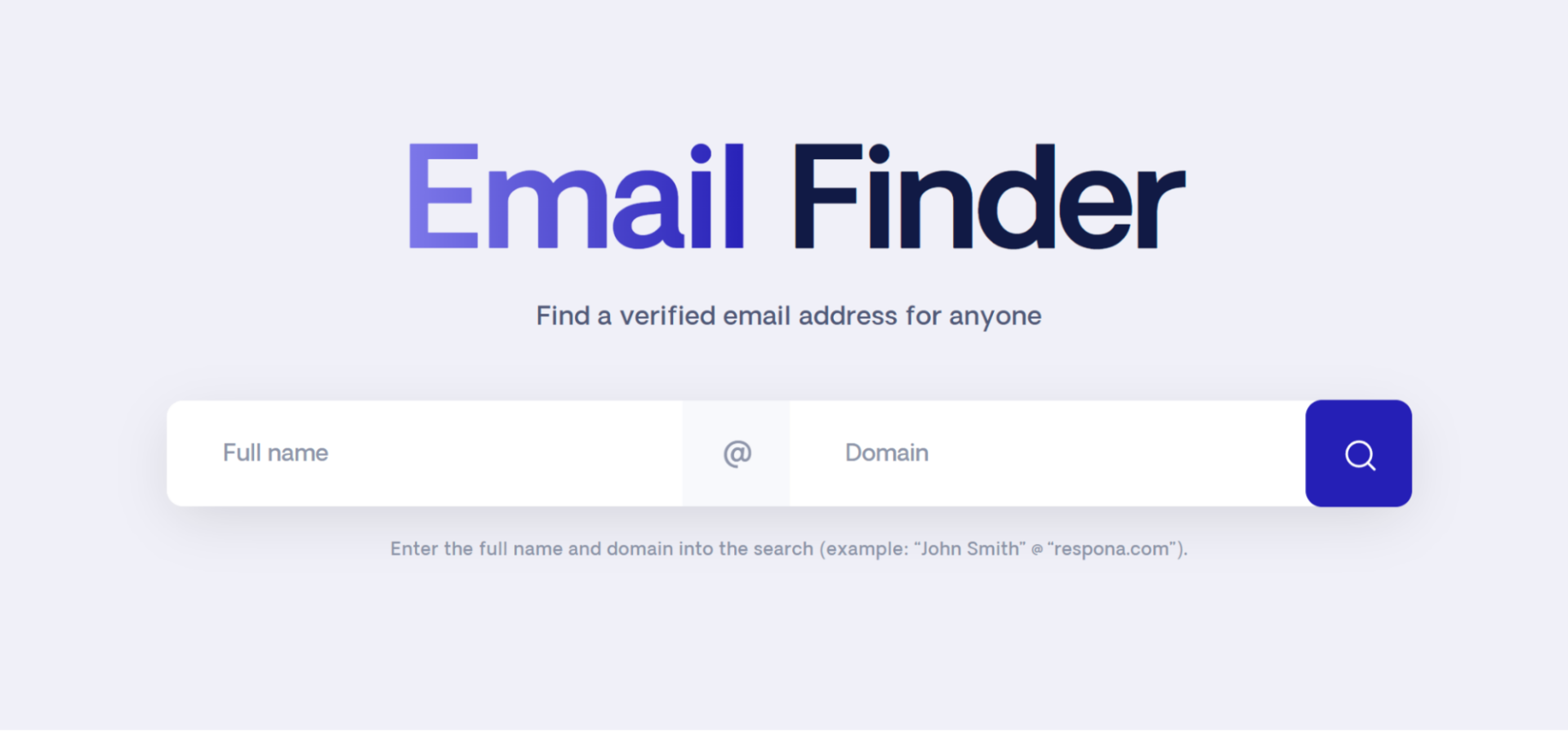
Also, find a unique value proposition that sets you apart from your competitors.
Instead of simply copying what others are doing, focus on providing something genuinely valuable and different.
Once you find a strategy that works, double down on it.
This approach allows you to build a distinct brand and attract a loyal audience, even in the most competitive markets.
Also, Google Ads are still a thing – and they’re not going anywhere anytime soon.
Are High Quality Backlinks Still Relevant?
With the rise of AI and the relative ease of content creation, you might wonder if backlinks still hold their weight.
The answer is a resounding yes. In fact, their importance has only increased.
While creating “quality” content has become more accessible, differentiating truly authoritative content is still a challenge.
This is where backlinks come in.
They can be the deciding factor between what ranks and what doesn’t, and signalto Google that your content is valuable and trustworthy.
Links remain a core component of Google’s PageRank algorithm.
Itmeasures the importance of a page by analyzing the quantity and quality of links pointing to it.
Essentially, links pass value from one page to another, and a stronger link profile translates to higher PageRank and, consequently, better rankings.
So, while the search engine optimization landscape is evolving, and the focus is shifting more towards user experience, the foundational principles remain.
New SEO isn’t dead; it’s simply evolving.
Link building cheat sheet
Now Over To You
So, is SEO dead?
Far from it. Looking back at Google’s history, it has always prioritized user experience.
And as long as you do so too, you’ll rank just fine.
Although, having a secret trick up your sleeve definitely helps – such as having more quality links than your competitors.
Need help growing your backlink profile?
Don’t hesitate to start your 14-day free trial with Respona to see how we can help.
Frequently Asked Questions (FAQ)
Is SEO truly dead in 2025?
No, SEO is not dead. It’s evolving.
The focus has shifted more towards user experience, quality content, and adapting to AI-driven search engine results.
While some older tactics might be outdated, the core principles of providing valuable content and a good user experience remain crucial.
How does generative AI content impact SEO?
AI content can be a useful tool, but it shouldn’t replace human creativity.
Google prioritizes original, helpful content that demonstrates E-E-A-T.
Over-reliance on generic AI-generated content can negatively impact your rankings.
What’s the impact of Google’s Search Generative Experience (SGE) on SEO?
SGE can reduce traffic to source websites by providing direct answers in search results.
However, it also offers opportunities to gain visibility through inclusion in AI-generated outputs, especially for listicle-style queries.
Focus on getting your brand featured in reputable listicles.
Are backlinks still important for SEO in 2025?
Yes, high-quality backlinks remain a crucial ranking factor.
They signal to Google that your content is valuable and trustworthy, reinforcing your site’s authority.
While the landscape changes, the core principles of PageRank and link value remain relevant.
How can I stay competitive in a saturated online market?
Prioritize user experience and find a unique value proposition.
Focus on creating high-quality, helpful content and building a strong brand identity.
Leverage free tools to attract visitors and double down on strategies that prove effective. Avoid simply copying competitors and focus on providing genuine value.





